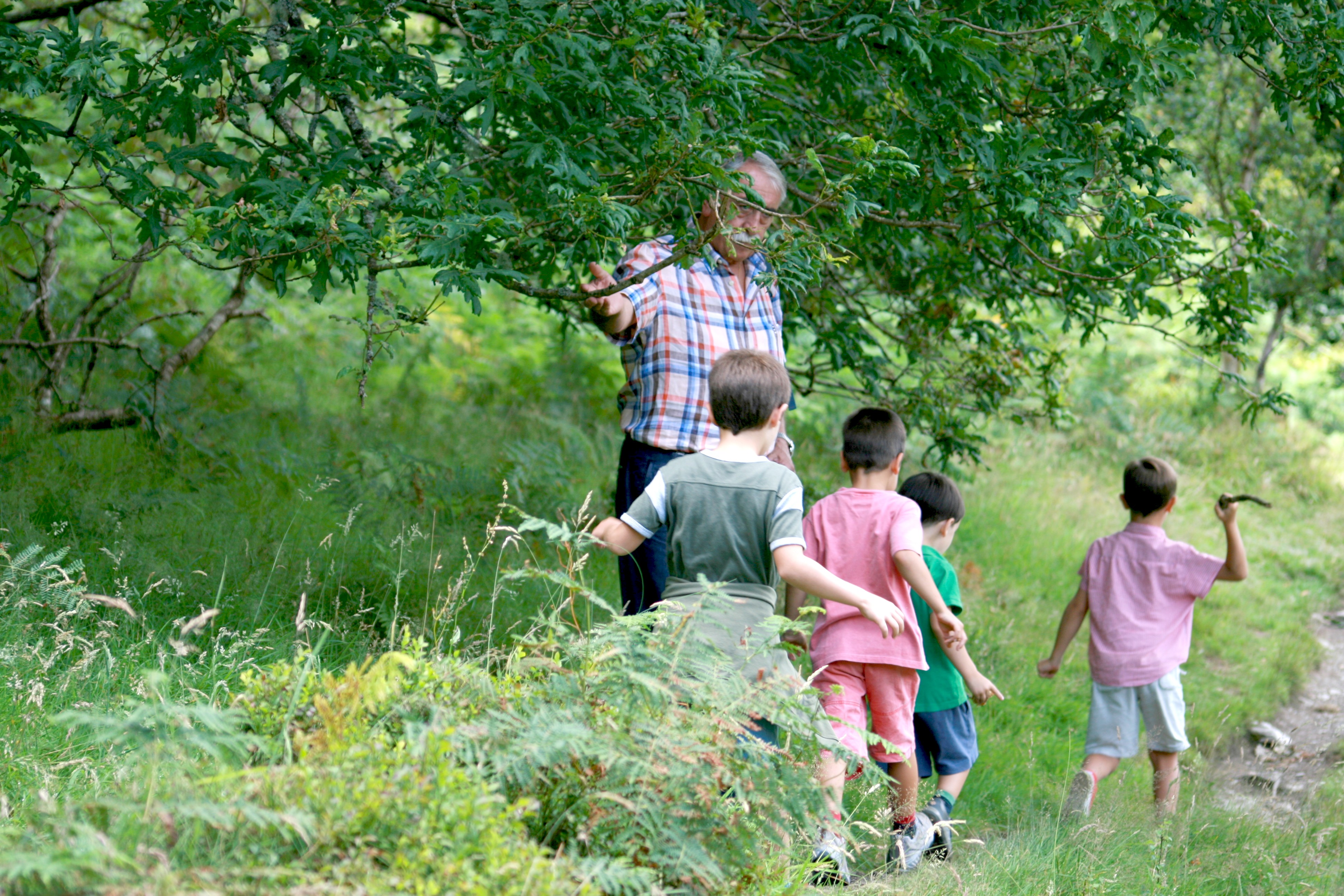Basque ethnography at a glance
The new season has just begun. Spring has sprung, even if at times the weather is determined to prove otherwise. The arrival of the vernal equinox brings with it changes everyone can perceive: days become longer, flowers bloom, bald trees burst into leaf and put on their green attire, the last snow melts and streams of water flow far and wide as winter loses its grip.

Let us hear the cuckoo. Izaskun Agirre. Labayru Fundazioa Photographic Archive.
In woodland areas and open farmland, there is yet another unmistakable evidence of the arrival of springtime: the calling of the cuckoo (Cuculus canorus). Indeed, the cuckoo is very much associated with the seasonal change of winter to spring and their symbolic meanings of death and life.
There is a wide range of popular proverbs, both in Spanish and Basque, about the cuckoo. A number of them refer to the time of the year the first cuckoo call is heard and how its song mysteriously stops at the arrival of summer. Here are some: “Entre marzo y abril, sale el cuco de su cubil; con la nieve no quiere venir” (Between March and April, the cuckoo leaves its winter retreat; while there is snow it refuses to come); “Al cuco san José le da el habla y san Pedro se la quita” (Saint Joseph —19 March— gives the cuckoo its sound and Saint Peter —29 June— takes it back); “Cuando el cuco llega, entonces es primavera; si el cuco aún no llegó, es que la primavera no comenzó” (When the cuckoo arrives, springtime is here; if the cuckoo has not yet reached, spring has not started); “Si marzo se va y el cuco no viene, o se ha muerto el cuco o la fin viene” (If March goes by and the cuckoo does not come, either the cuckoo is dead or the end will come). Or this one in Basque: “Kukuak Andra Mari Martikoz kuku, san Pedroz mutu” (On the Annunciation of the Blessed Virgin Mary the cuckoo sings, on St Peter’s Day it is silent). The following statements and quotes could well be their English counterparts: “The cuckoo comes in April, and stays the month of May; sings a song at Midsummer, and then goes away”; “The first cock of hay frights the cuckoo away”; “When the cuckoo comes to the bare thorn, sell your cow and buy you corn; but when she comes to the full bit, sell your corn and buy you sheep”; “The cuckoo sings from St Tiburtius’ Day —14 April— to St John’s Day —24 June—”; or according to the old Julian calendar, and as Chaucer stated, “On the third of April, comes in the cuckoo and the nightingale”.
Others point to the volatile springtime weather: “Cuando el cuquillo canta, tan pronto sol como agua” (While the little cuckoo sings, one minute the sun is out, the next rain falls), and this one in Basque “Kukua kantatzen, euria eta eguzkia” (The cuckoo is calling; could be rain, could be sunshine).
Some relate to the relatively simple and repetitive koo-koo tune: “El cuco canta su nombre” (The cuckoo calls its name); in Basque, “Kukuak zazpi urtean eskolan ibili eta kuku baino besterik ez eban ikasi” (The cuckoo went to school for seven years and only learned to say its name). English folklore records: “You are like a cuckoo, you have but one song”.
Cuco or cuca in Spanish also apply to cunning men or women who want to thrive in life, which has a lot to do with the fact cuckoos do not make a nest of their own and do not bring up their own young. Instead, the female cuckoo pushes one egg out of another bird’s nest, always careful to choose a host smaller than itself, lays its egg and flies off, leaving the offspring to be hatched and fed by ‘foster parents’.
An old belief has it the money you carry on hearing the first cuckoo of spring will last you all year. Should you, on the contrary, happen to be penniless, so you will remain. As the saying goes: “Turn your money when you hear the cuckoo, and you will never be without it during the year”.
So you had better put some cash in your pocket in case you hear the cuckoo sing!
Akaitze Kamiruaga – Popular Cultural Heritage Department – Labayru Fundazioa
Translated by Jaione Bilbao – Language Department – Labayru Fundazioa


